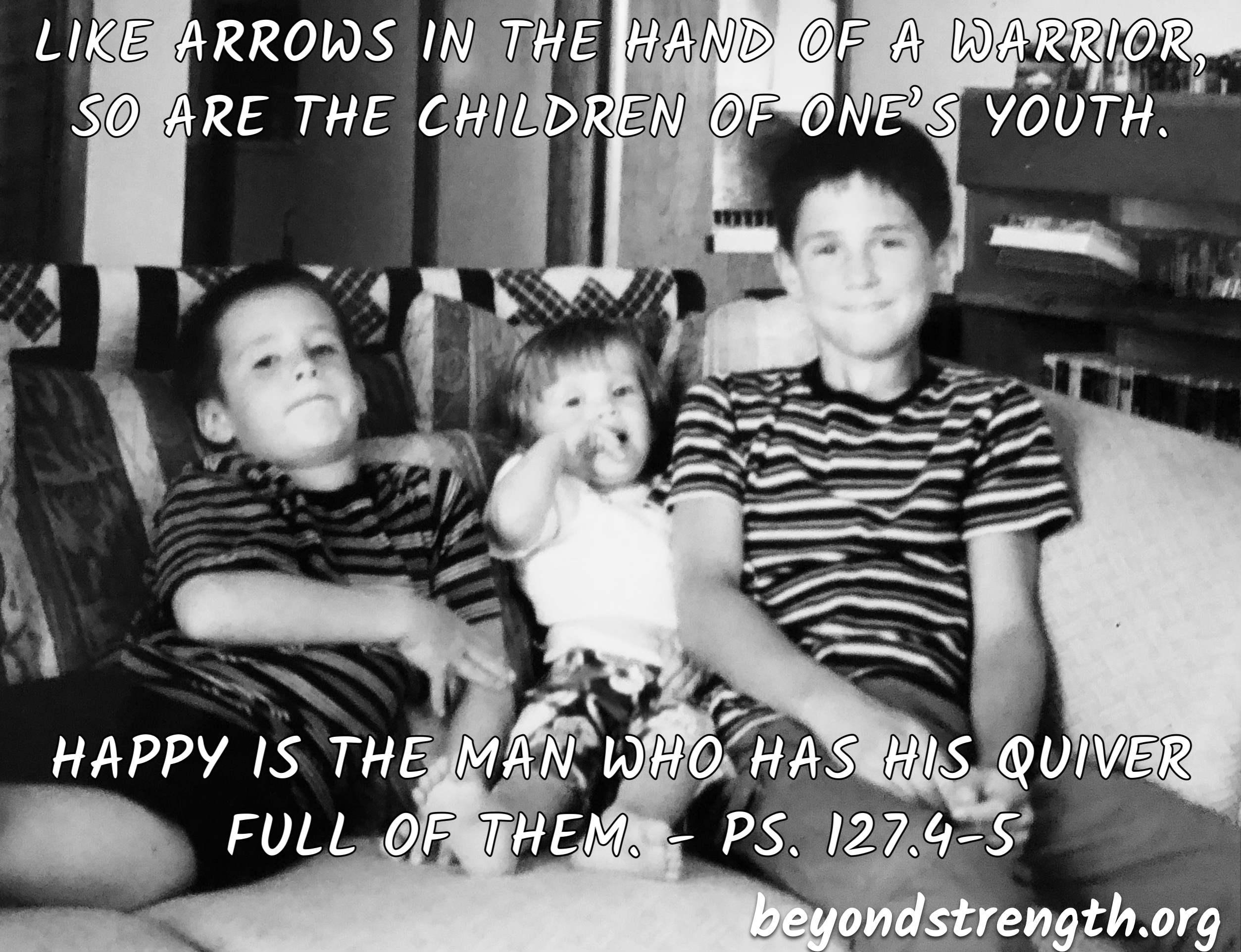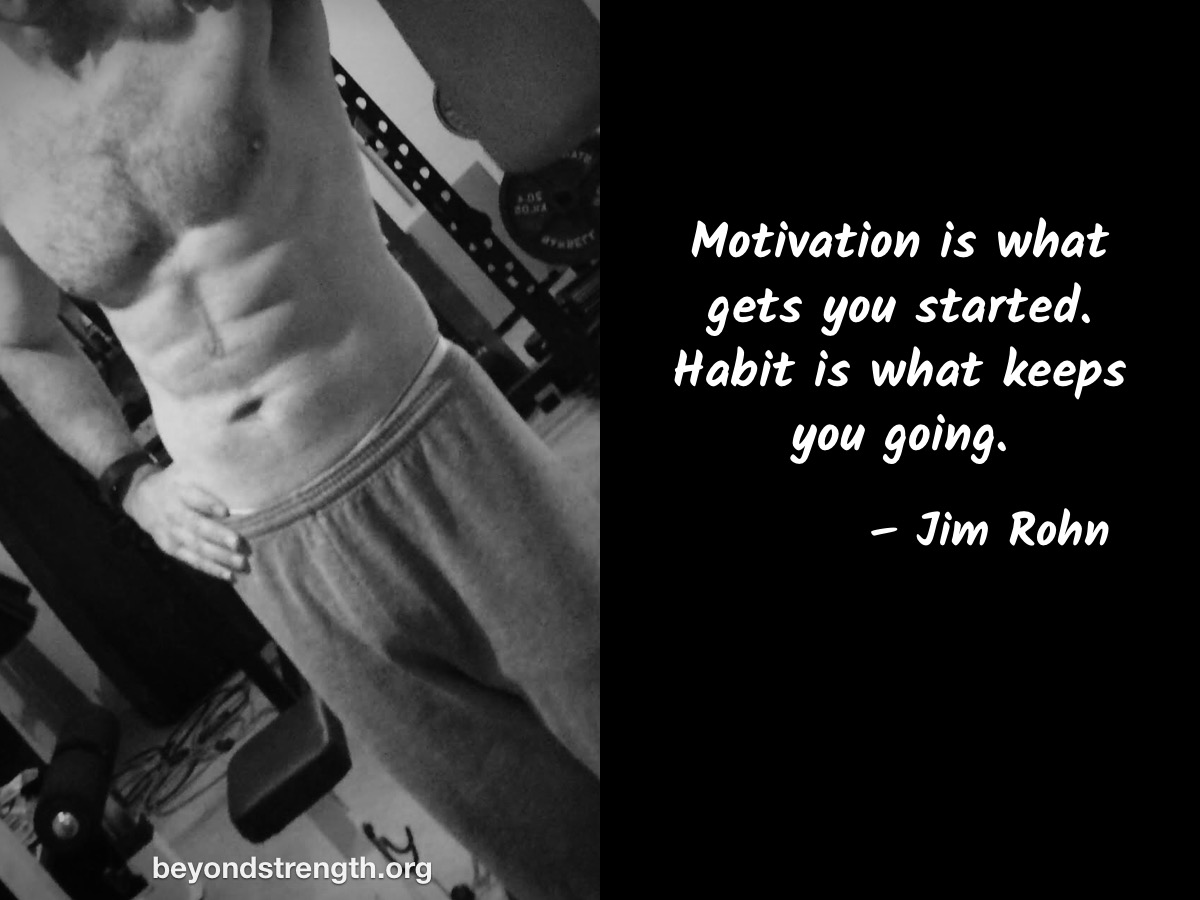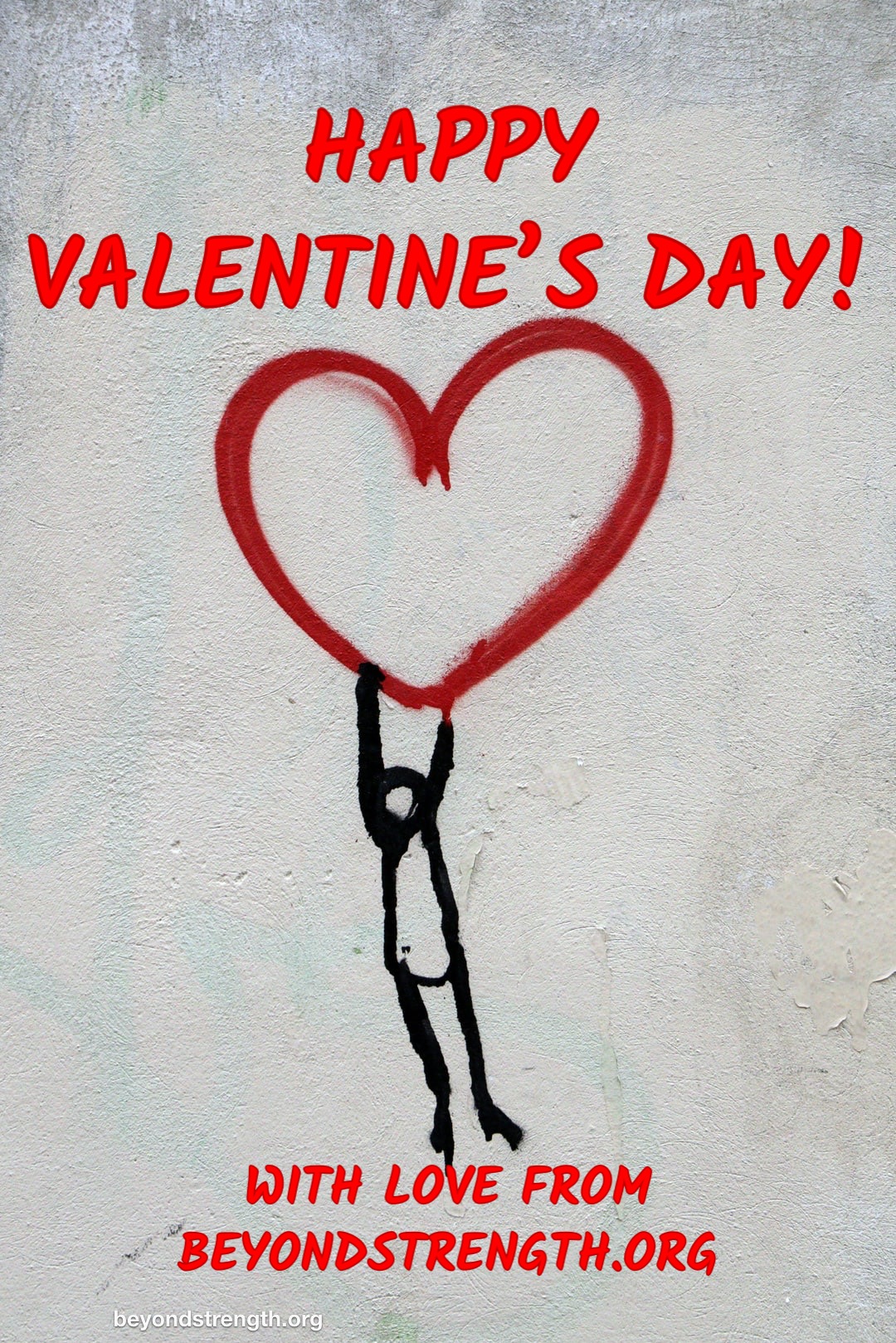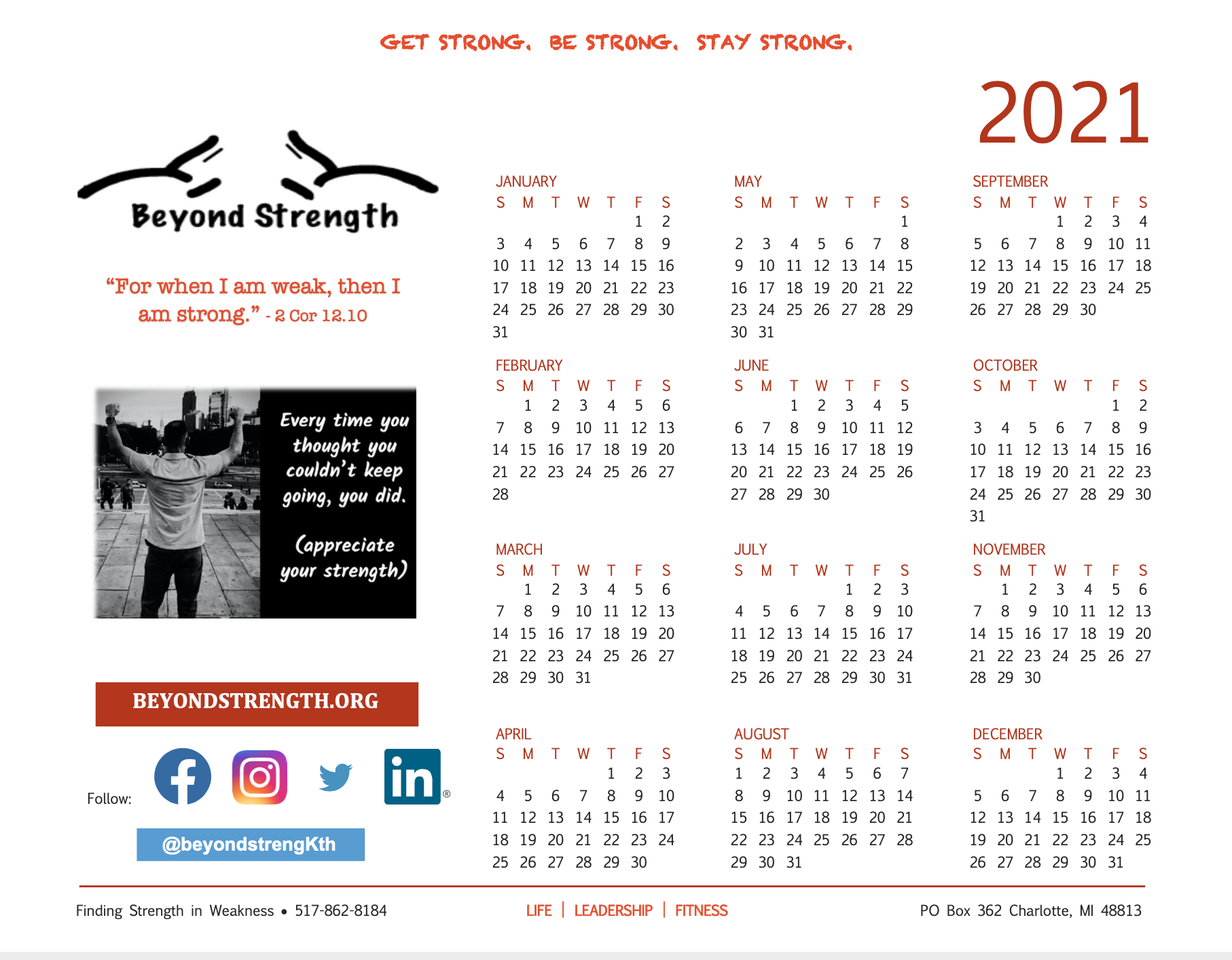
Wishing dads everywhere a very Happy Father’s Day today. Never underestimate the influence of a father (or father figure) in someone’s life.



Wishing dads everywhere a very Happy Father’s Day today. Never underestimate the influence of a father (or father figure) in someone’s life.

As Memorial Day approaches, I offer this encore presentation of Lest We Forget, originally posted this date in 2018. It is also available by audio at the SoundCloud or YouTube links provided below.
“By this we know love, because he laid down his life for us.” These are the words of the apostle John, written somewhere around A.D. 90. John was referring to Jesus Christ in the first half of that verse, but he goes on in the second half to say, “And we also ought to lay down our lives for the brethren.” (1 John 3:16). The next few verses of that passage articulate what I consider some of the most insightful facts about love ever documented, the bottom line of which is this: genuine love ALWAYS results in action…not just sentimental words. Memorial Day is a holiday through which we rightfully pause to remember the actions resulting in ultimate sacrifice by those defending freedom.
Since 1775, more than a million American service members have died in wars and conflicts to preserve the freedoms we hold dear, fighting for our independence. They helped create the world we live in and paved the long road of democracy we continue walking today. We all owe them our gratitude for the freedom to live, work, play, express our faith, and raise our families. I’m especially mindful today of those thousands of brave sons and daughters who paid the ultimate sacrifice fighting our nation’s wars…who died while preserving our way of life.
These men and women were some of America’s best and brightest. They gave their lives on the blood-soaked beaches of Normandy, in the jungles of the South Pacific, and over the skies of Nazi Germany and Imperial Japan. They fought and died on the icy slopes of the Korean Peninsula and in the rice paddies of Vietnam. More recently, they have fought and fallen in the mountains of Afghanistan and in the deadly streets of Iraq. Only those who have seen the horrors of war firsthand can ever truly know what these Soldiers, Sailors, Airmen and Marines may have gone through in their final moments.
“…I think of all those guys killed in action, wounded in action, and their friends, their relatives and all those altered lives. How could I forget? It’s not so much what we went through as it is knowing what the other guys went through. They died dirty. They died hot, hungry and exhausted. They died thinking that their loved ones would never know how they died.” Clinton Poley, 2nd Platoon, Charlie Company, 1st Battalion, 7th Cavalry in the Ia Drang – as written in Lt. Gen. Harold G. Moore’s book We Were Soldiers Once…And Young.
Even though the technology of war has changed dramatically since the American Civil War, the risks and suffering has not. For brave Americans who bear that risk, no victory is free from sorrow. This nation’s men and women fight proudly, but we likewise know the price and weigh the cost each time we see another flag-draped coffin carrying the remains of another fallen hero home. I can tell you that having been there on the other end as some of those heroes began their journey back to the U.S., the loss is real…tangible…and tragic to those grieving, on both sides of the ocean.
It is humbling, and comforting, to realize that despite the known dangers, increased operations tempo, and unconventional enemy we now face, every member of the all-volunteer armed forces serving today has either enlisted or re-enlisted since September 11, 2001. And as of 2013, more than half of those serving were seasoned combat veterans.
“We few, we happy few, we band of brothers; For he to-day that sheds his blood with me shall be my brother;” – Shakespeare, Henry V, Act IV, Scene 3.
Those who have known combat make me think of the words from the Man in the Arena portion of Theodore Roosevelt’s ‘Citizenship in a Republic’ speech: “It is not the critic who counts; not the man who points out how the strong man stumbles, or where the doer of deeds could have done them better. The credit belongs to the man who is actually in the arena, whose face is marred by dust and sweat and blood; who strives valiantly; who errs, who comes short again and again, because there is no effort without error and shortcoming; but who does actually strive to do the deeds; who knows great enthusiasm, the great devotions; who spends himself in a worthy cause; who at best knows in the end the triumph of high achievement, and who at worst, if he fails, at least fails while daring greatly, so that his place shall never be with those cold and timid souls who know neither victory nor defeat.”
America’s military has defended her throughout history with courage and honor. Our service members raised their right and swore an oath, knowing what they had to do and what that cost might be…the shedding of blood. Perhaps their own. They are humble servants, serving something greater than themselves. Remember the fallen…today and every day.
Get Strong. Be Strong. Stay Strong.
If you have an extra few minutes, I encourage you to watch this video about Air Force Pararescueman William Pitsenbarger, killed in action in Vietnam, April 1966. Video courtesy of the United States Air Force. http://www.airman.af.mil/HeritageToday/videoid/492074/dvpcc/false/#DVIDSVideoPlayer33885
I also encourage you to learn more about the high price Americans have paid in service to the nation by exploring the following link: https://www.va.gov/opa/publications/factsheets/fs_americas_wars.pdf
Some of the above is taken from speeches I have given at Memorial Day events, with some of that content originally derived from military Public Affairs Office talking points provided for consistent messaging by those speaking in an official capacity.
Man in the Arena quote retrieved from: https://www.leadershipnow.com/leadingblog/2010/04/theodore_roosevelts_the_man_in.html
Shakespeare quote retrieved from: http://shakespeare.mit.edu/henryv/henryv.4.3.html


A Google search reveals a few definitions for ‘paradox’: a seemingly absurd or self-contradictory statement or proposition that when investigated or explained may prove to be well founded or true; a statement or proposition that, despite sound (or apparently sound) reasoning from acceptable premises, leads to a conclusion that seems senseless, logically unacceptable, or self-contradictory; a situation, person, or thing that combines contradictory features or qualities. Paradoxical then being something with two meanings that don’t make sense together; or a contrary opinion.
A similar search reveals confliction is a fight or strong disagreement (conflict).
Paradox, conflict, contradiction. Redundant or not, this concerns my internal disagreement (conflict), compounded by contrary opinions.
I’m surely not the only person of faith who sometimes feels conflicted. Not just because of differing opinions or interpretations of scripture. The fact is, there are a number of contradictory or paradoxical statements in the Bible. For instance, giving to receive; dying to live; walking by faith not by sight; being yoked (laboring) to find rest; humbling oneself to be exalted; loving your enemies; God loves me yet allows heartache in my life. Even the subtitle of this blog, ‘Finding Strength in Weakness’, is paradoxical and rooted in the Bible.

Pondered within context, these present little problem for the believer. In fact, understanding them often leads to greater peace and a deeper relationship with God.
But perhaps a greater problem for many is confliction or confusion reconciling life today to biblical times. Every believer should guard against trying to conform a timeless and limitless God into their convenient discomfort-avoiding-box-of-human-relativism (modern existence). But the fact is, scholars sometimes interpret the same scripture differently, which can be particularly troublesome for believers…especially when it comes to commandments versus convictions. Making matters worse for already conflicted or confused people of faith, it is not uncommon for so-called pillars of the church to be most rigid in their ‘convictions’. And the first to confuse them for commandments.
I have a low threshold for boredom and a high threshold for busyness. This leads to a variety of extra responsibilities, hobbies, social activities, and other things that consume my time. Serving on various boards of directors and work activities provide professional satisfaction; hobbies and a variety of other creative endeavors provide needed outlet and opportunity to spend time with friends and family. Which is paradoxical in itself: being too busy can elevate stress or negatively impact relationships, while boredom often leads to nothing good (cf idle hands are the devils playthings). Which can likewise elevate stress and lead to nothing good, by the way.
My issue is a combination of trouble saying no, desire to please people, and knowing my propensity for less-than-productive thought life tendencies when I sit idle too long. Maybe I’m ‘wired’ that way, or maybe some of the things I’ve seen and done – that people really shouldn’t – somehow crossed up my wiring along the way.
Which brings me to my current confliction.
My friend Steven and I recently started something we call the Rhythm Section’s Guide to Mixology. He had the idea to create instructional videos of us making cocktails for our wives, while helping viewers “up their drink making game.” Between our friendship and the chemistry we already have playing in a band together, we knew it would be a creative way to do something fun together with our wives.
So what’s the conflict?


First, I’m confident not all of my Christian friends approve or agree with what we’re doing. While we certainly never advocate over-indulgence, nor partake in most of the concoctions ourselves, alcohol consumption is still one of those areas where Christians widely disagree. I’m no biblical scholar, but this is one of those commandment versus conviction situations that is highly sensitive and can create confusion or misunderstandings. So I’m concerned with how some feel about this venture. There’s also this paradox: even if it isn’t inherently wrong, neither do I want to cause anyone to stumble (cf 1 Cor 10.31). Self-doubt is seldom in short supply for me.
Secondly, I take great care, time, and effort providing essays here that are meaningful, insightful, helpful, or mildly entertaining. While I deeply appreciate every follower and all the shares, likes, and comments, our first Rhythm Section’s Guide to Mixology episode garnered more views and feedback than many of my articles, combined.
Oof. Not only is that disappointing, it may also be a sign it’s time to add something to this project, as well. More to come on that.
Here’s a few other head-scratchers to ponder, paradoxes or not.
I can’t see the forest for the trees; gotta be cruel to be kind; Tequila is mezcal, but mezcal is not necessarily tequila (thanks Matt and Dave); bourbon is whiskey, but not all whiskey is bourbon; champaign is wine, but wine is not necessarily champaign.

These are clearly not the best examples of paradoxes or conflictions, so I encourage you to comment below with a few of your own.
I also encourage you to research an old article by Jerry B. Harvey where he explains the Abilene Paradox. The Abilene Paradox says that the “…inability to manage agreement, rather than conflict, is the single most pressing issue of modern organizations” and that “Organizations frequently take actions contrary to the desires of any of their members, and defeat the very purposes they set out to achieve.”
Paradox for thought.
Get Strong. Be Strong. Stay Strong.
https://www.vocabulary.com/dictionary/paradoxical


My parents divorced when I was young. Hindsight tells me that resulted in a fair amount of confusion and uncertainty, even though I didn’t recognize it at the time. It likely explains, on some deeper psychological level, some of the nonsensical things that provide a sense of comfort even to this day. Things like carports, covered porches, other overhangs and enclosures; airports, hospitals, other places that are always open; and structure or routines.
One of those routines was watching the yearly broadcast of classics like ‘It’s the Great Pumpkin, Charlie Brown’, ‘A Charlie Brown Christmas’, ‘Rudolph the Red-Nosed Reindeer’, ‘Frosty the Snowman’, and ‘The Wizard of Oz’. Pre-cable, pre-streaming (even pre-color in some instances), these were standard family routines. Later, annual VHS viewings of ‘White Christmas’ became a new but similar routine. Likely because I could relate, I remember feeling bad for Charlie Brown, and angry at those making fun of Rudolph. I also remember being a little freaked out by flying monkeys, melting witches, and talking melting snowmen. Owning a quaint lodge somewhere like Vermont, or performing in dinner clubs across the world like entertainers Crosby, Kaye, Arnaz, or Sinatra has secretly always appealed to me.

Then there’s that pay-no-attention-to-the-man-behind-the-curtain thing.
I routinely self-deprecate. The fact it took me a minute to fully understand the Wizard’s deception doesn’t make me feel better about myself. Nonetheless, all the above provide analogue to things like transparency, accessibility, reality, and routines.
Roman emperor and philosopher Marcus Aurelius wrote “Never value anything as profitable to yourself which shall compel you to break your promise, to lose your self-respect, to hate any man, to suspect, to curse, to behave hypocritically, to desire anything which needs walls and curtains.” (emphasis added)
I was pretty much toast at point number one…with a firm twisting of the knife by the last.
The Apostle Paul put it another way: “”Everything is permissible” – but not everything is beneficial. “Everything is permissible” – but not everything is constructive.” (1 Cor. 10.23)
Consider the words of former FBI profiler Roy Hazelwood that perhaps cut deepest to the heart of the matter: When everything is tolerated, nothing is forbidden. Does that not typify today’s social condition? Moral relativism. Woe any who disagree or take a contrary stand based on their own values or viewpoints.
I’m certainly not qualified to cast stones. But it seems duplicitous to accuse people of intolerance or narrow-mindedness simply because they disagree or don’t embrace one thing or another, pointing the finger of judgment and demanding concurrence with their worldview – yet not giving others the same allowance to believe as they choose. We don’t have to agree on everything to respect one another…not embracing someone else’s beliefs, lifestyle, or opinion doesn’t automatically render the other person a bigot.
Like the Wizard, duplicity and transparency are just a couple of problems with many people and organizations. Its effects are compounded particularly within organizations, where people have been repeatedly ‘rewarded’ despite lackluster performance, or promoted beyond their level of competency, and are unable or unwilling to change. Instead, pride or a lack of humility keeps them in a land of Oz, protected by their walls (position) or concealed behind their curtain of favoritism and double-standards; blind or unconcerned to the impact of their actions. This obfuscated leadership tendency is likely one attribution to the phrase ‘smoke and mirrors’.
Two years ago I wrote ‘Friends without Coffee’, a tribute to my South Florida friend. I described him as an unfiltered, anti-establishment kind of guy. He isn’t one to beat around the bush. He says what’s on his mind…no smoke and mirrors. While some cringe at that, he is the antithesis of the assertion “If you have politically correct opinions, you can get away with just about anything.”1

In a creative retelling of a Greek warrior-god in her book The Song of Achilles, author Madeline Miller masterfully describes this ‘direct’ disposition she gave Achilles: “He said what he meant. He was puzzled if you did not. Some people might have mistaken this for simplicity. But is it not a sort of genius to cut always to the heart?”
It’s hard not to respect someone for being unapologetically real. Organizations and people, alike, could benefit from more reality.
And less window dressing.
Everyone is flawed. But refusing to acknowledge, change, or improve known shortcomings is willfully negligent. Taking the yellow brick road of prudence and humility is a good start. Maybe an apology or two. Probably best if I shuffled around the house on my knees to save time preparing for my next apology…
Sometimes we erect walls to protect ourselves because of past wrongs or heartache. We also hide parts of ourselves, our thoughts, or our actions to spare those we care about from the pain it would cause them. We even blur the truth for other reasons, right Santa Claus?
I don’t have it all figured out.
The fact is, I am a sinner saved by grace. Fortunately for those of us whose drapes are tattered from hiding behind them, “…a new and living way opened for us through the curtain, that is his body…” (Hebrews 10.20).
The truth will set you free.
Get Strong. Be Strong. Stay Strong.
If I can help with that, please like, comment, share, and sign up to receive these blatherings by email.

1 Dobson, Ryan (2003). Be intolerant because some things are just stupid. Sisters, OR: Multnomah.
Miller, Madeline (2012). The song of achilles. New York, NY: HarperCollins.
Robertson, Donald (2020). Meditations the philosophy classic (based on The Thoughts of Emperor M. Aurelius Antoninus, translated by George Long). West Sussex, UK: Wiley



If you stumbled across this article assuming it’s about the election or the last six months of political idiocy, it’s not. It’s actually about attitude, motivation, and inspiration. But keep reading! I’m certain you’ll find value, enjoyment and maybe even some parallels.
Pirates of the Caribbean character Captain Jack Sparrow is quoted saying “The problem is not the problem. The problem is your attitude about the problem.” It’s just coincidence that I was on the Caribbean coast of Mexico when the substance of this article emerged.
Being in Mexico resulted from a canceled cruise, but I wouldn’t call it a bad option. The weather, accommodations, surroundings, sustenance, and company were near-perfect. Conversely, as I write this it’s a snowy and windy nine degrees…to say I’d rather be back in Quintana Roo is an understatement. Nonetheless, as I try to warm my icy toes and glance out at blowing snow, I think back to a walk on the beach just a week-and-a-half ago.

Like some of you, I people-watch. Most anyone in the profession of arms will tell you people watching is not just a clumsy excuse husbands use when their eyes wander. For those trained to observe and expected to respond when things go bad, being on ‘constant alert’ becomes hard-wired and perpetual. I suspect it’s why many us us struggle to rest, unwind, or relax…especially in public spaces.
As I sought to ‘unwind’ on the beach, I noticed an athletically well-put-together, short-haired, middle-aged man smoothly striding the Mexican sand with stoic confidence. Were it not for wearing shorts, I would never have noticed his prosthetic lower left leg. The way he carried himself and combination of physical attributes convinced me he was a fellow combat veteran who’d paid a higher price than most. A chance meeting in the gym would later confirm my instant assessment was completely incorrect. But my new friend turned out to be no less impressive and inspirational.
I’ve built a notable gym and enjoy working out at home. I’m thankful to be self-motivated enough to consistently do so alone, but I don’t begrudge those who patronize gyms and derive motivation from it. In fact, it’s long been my desire to open one. But I can do without the posturing testosterone-festivals at some public gyms, where genetically ‘gifted’ beefcakes preoccupied with impressing others look down their flaring nostrils at average guys like me. Still, I sometimes find inspiration there. Mostly from humble, hard-working hard-gainers, unconcerned with attention-grabbing mating rituals. Such was the case with Greg.
He was there to work; harder than most. The fact that he is an amputee made no difference, yet made all the difference. I watched Greg’s presence raise the level-of-effort throughout the gym, mine included. By the time I introduced myself, he was cooling down on a recumbent bike, still sweating more than me. I thanked him for the inspiration and asked, “Was it one of the three ‘Cs’ – cancer, combat, childhood injury?”


There was no hint of annoyance with my imposition, nor hesitation with his answer. He smiled and replied “You forgot diabetes and motorcycle crash. Those are the two I get most often.”
It was a motorcycle crash; broadsided by a car that ran a red light.
Greg freely shared his story there in the gym, and poolside as we chatted off and on the next few days. I quickly came to appreciate and respect his disposition, the human being he is, and what he does to counsel others who’ve suffered catastrophic injuries.
In his book Call Sign Chaos, Jim Mattis quotes a writing by President Thomas Jefferson that reads, “What is good in this case cannot be effected. We have, therefore, only to find out what will be least bad.” According to Mattis, Jefferson was speaking of how to deal with England in 1807.
The context is clearly different, and I don’t presume to speak for Greg. But in my conversations with him, I understood that for three years he underwent recommended surgeries in attempts to preserve his damaged limb. He told me having it removed was one of the best decisions of his life. In his case the ‘good’ could not be effected. His lower leg and foot, despite being ‘preserved’, did not function properly. Amputation, while perhaps the ‘least bad’ option to him at the time, ultimately became the best solution. It’s tough to argue that truth when you see Greg walking down the beach, jumping in the pool, or out-sweating others in the gym. By the way, he still loves to waterski.
Truth is, I wasn’t most stirred by how Greg carried himself, his impressive physical shape, or even his tolerance of a stranger interrupting his workout to ask personal questions. It was his humble spirit and positive attitude. I noted many nuggets of wisdom as we talked, but the one that stuck with me most went something like this: ‘I’ve always believed there’s no sense feeling sorry for yourself…you just gotta pick yourself up by the bootstraps and keep going’.
Well said, Greg. And well-lived. I hope to go skiing with you in South Texas sometime.
Keep doing great things!

Get Strong. Be Strong. Stay Strong.
Mattis, J.N. & West, F.J. (2019). Call sign chaos. New York, NY: Random House.


